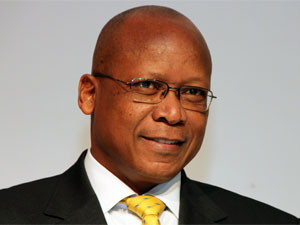
Intense competition, ongoing sanctions, lower termination rates in three of MTN's largest operations, as well as the temporary cessation of operations in three Nigerian states, weighed on MTN's results in the first half of the year.
However, the group does not see any further price erosion in the pipeline and says it will focus on costs and creating new, innovative products to generate new sources of revenue. In addition, its largest operation - Nigeria - has started moving back into growth territory.
In the six months to June, the group reported revenue growth of 9.8%, to R65.2 billion, boosted by the depreciating rand, but earnings before interest, tax, depreciation and amortisation only gained 6.4%, to R27.7 billion. Headline earnings per share grew 22%, to 654c.
Under pressure
Revenue was negatively impacted by the tariff cuts in both Nigeria and SA. MTN notes that average voice tariffs across its markets fall 29.5% in dollar terms year-on-year.
CEO and president Sifiso Dabwenga says the operating environment has been challenging and revenue only gained 2% in constant currency. MTN's strategy remains the same and it has made progress in its execution, he says.
MTN has faced strong competition in key markets and the lower mobile termination rates also affected revenue, says Dabwenga. Cost control will continue to be a key focus area and it will also seek to monetise its assets, he notes.
The Independent Communications Authority of SA (ICASA) is currently reviewing the termination rates, and news as to another drop or a new glide path is expected by March next year, says Dabwenga.
driver
The group has cited data as a future growth driver and it saw data revenue gain 36.9%, to R9 billion, which is about 14% of overall turnover. The group is focusing on developing new products that it can use to boost revenue growth.
MTN has also been spending on its network, with capital expenditure gaining 32.7%, to R12.8 billion, as it rolled out more 2G and 3G base stations. The operator is pushing 3G-enabled devices in a bid to further grow data.
During the half-year, MTN - present in 22 countries - passed the 200 million subscriber mark, growing its base 6.5% to 201.5 million. Of these, some 65.4 million are data subscribers, a 29.5% gain.
Data traffic grew 55.7% and it now has 122.2 million data-enabled devices on its networks, while there are 31.6 million smartphones in use.
Local view
In SA, the group had disappointing subscriber growth, says Dabwenga. He says this was mostly due to its slow response to price cuts. SA is its third-largest operation.
However, data - including 3G and smartphones - gained with traffic growing 63% year-on-year, says Dabwenga. Its earnings before interest, tax, depreciation and amortisation were impacted by higher handset costs, he adds.
Capital expenditure continued and R2.2 billion was invested in the first half. Dabengwa says there is still no clarity on spectrum to enable more rapid long-term evolution rollout. He hopes for clarity by year-end.
For the rest of the year, MTN expects improved organic growth overall. "Although operating conditions in South Africa are expected to remain difficult, we will continue to focus on competitive, value-added propositions and on improving cost-efficiencies."
Share